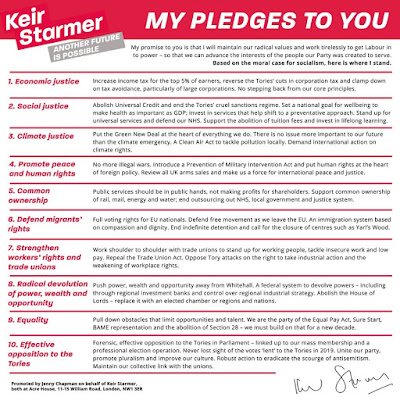Are Starmer's pledges worth the paper they were written on?

The 10 pledges made by Keir Starmer on his way to victory in the Labour leadership election planted his campaign firmly in the ground marked by the 2017 general election manifesto that almost put Corbyn's Labour into government. But six months on, questions are increasingly being asked about whether he intends to stand by them. On both the left and right wings of the party and among some commentators there is a growing belief that the pledges were nothing but a ruse to lure former Corbyn supporters away from his chosen successor Rebecca Long-Bailey, and having served their purpose are now in the process of being quietly dropped to make way for a return to Blair-style centrism. But is this belief actually true? Approaching this question as a very forensic lawyer might do, let's first consider the case for the prosecution. The belief on the Labour right and among centrist pundits that Starmer is their man is well summed up by Andrew Rawnsley's recent column on his confe...



